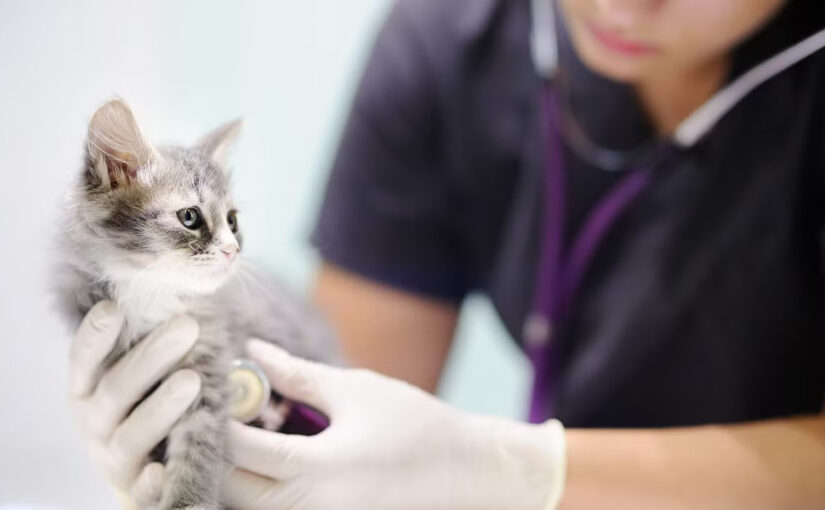Your rabbit’s health should be your top priority when preparing for surgery. In Singapore, pre-surgery When preparing for surgery, your rabbit’s health should be your top priority. In Singapore, pre-surgery vet consultations are essential to ensure your pet is ready for the procedure. Whether it’s a routine or urgent operation, meeting with a rabbit vet in Singapore can make a significant difference. This article will outline key steps to guarantee your rabbit’s health and readiness for surgery.
1. Assessing Your Rabbit’s Overall Health
Before any vet surgery, a thorough health assessment is critical. During a pre-surgery vet consultation, the vet will carefully examine your rabbit’s condition. They will review your pet’s medical history and perform physical checks to detect potential issues. Conditions such as dental problems, respiratory issues, or digestive concerns may increase the risks of surgery. By catching these early, the vet can adjust the surgical approach or recommend postponing the procedure if necessary. This proactive step ensures that your rabbit undergoes surgery in the best possible health condition.
2. Blood Tests and Diagnostics
Blood tests are a vital part of the pre-surgery process. Your vet may recommend diagnostic tests to evaluate your rabbit’s organ function and overall health. These tests can detect underlying conditions like liver or kidney issues that may not be evident during a physical exam. Bloodwork also helps determine if your rabbit can tolerate anaesthesia safely. It’s always better to be cautious and ensure your rabbit’s body is fully prepared to handle the procedure. Addressing potential issues early reduces risks and improves the chances of a successful outcome.
3. Anaesthesia Considerations
Rabbits have unique sensitivities to anaesthesia, making it one of the most critical aspects of pre-surgical planning. The vet will assess your rabbit’s weight, age, and health status to determine the safest anaesthesia dosage. They may discuss different anaesthetic options and explain the risks involved. The goal here is to minimise any side effects during and after surgery. Ensuring that the proper anaesthesia protocol is in place helps reduce stress for your rabbit. It enhances their overall safety during the operation.
4. Dietary Adjustments Pre-Surgery
Your rabbit’s diet plays a significant role in preparing them for surgery. The vet will advise on necessary dietary changes in the days leading up to the procedure. Unlike some animals that require fasting, rabbits should never be starved before surgery. Keeping their digestive system functioning is vital, as rabbits are prone to gastrointestinal stasis, a life-threatening condition. The vet may suggest feeding fibre-rich foods to maintain gut health, which ensures your rabbit is in the best possible condition before the operation.
5. Monitoring Stress Levels
Rabbits are easily stressed, especially in unfamiliar environments like vet clinics. Stress can negatively affect their health and recovery, so managing this is integral to pre-surgery. Ask about techniques to reduce your rabbit’s anxiety during your vet consultation. The vet may suggest keeping your rabbit in a quiet space, using calming products, or bringing a companion rabbit for support. Minimising stress will aid your rabbit’s recovery and improve their response to surgery.
6. Post-Surgery Care Planning
Preparing for your rabbit’s surgery doesn’t stop at the operating table. Discussing post-surgery care during your vet consultation is crucial for a smooth recovery. The vet will guide you on what to expect after the procedure, including medication administration, wound care, and dietary needs. Understanding these details helps you create a suitable recovery environment for your rabbit. Your vet may also provide a follow-up schedule to closely monitor your pet’s healing process. Preparing for the post-surgical phase ensures your rabbit’s health is well-supported after the operation.
7. Hydration and Fluid Therapy
Keeping your rabbit hydrated is another critical step before surgery. Vets might administer fluids during the consultation or on the day of surgery to prevent dehydration and improve your rabbit’s ability to recover post-surgery. Fluid therapy is vital for older rabbits or those with pre-existing conditions. Ensuring your rabbit is well-hydrated strengthens their system and reduces complications, setting the foundation for a quicker recovery.
8. Emergency Preparedness
While vet surgeries in Singapore are generally safe, emergencies can happen. During your pre-surgery consultation, discuss emergency protocols with your vet. They will outline how they manage unexpected situations during the surgery and explain what to do if complications arise during recovery. Knowing that your vet has a plan offers peace of mind and ensures that your rabbit will receive the best care, should anything go wrong.
Conclusion
Pre-surgery vet consultations are vital to ensuring your rabbit’s health and safety in Singapore. These consultations provide an opportunity to assess your rabbit’s health, discuss anaesthetic risks, plan for post-surgical care, and reduce stress levels. By thoroughly preparing, you can minimise complications and give your rabbit the best chance for a smooth and successful surgery.
For more information, contact Paws & Claws today.


